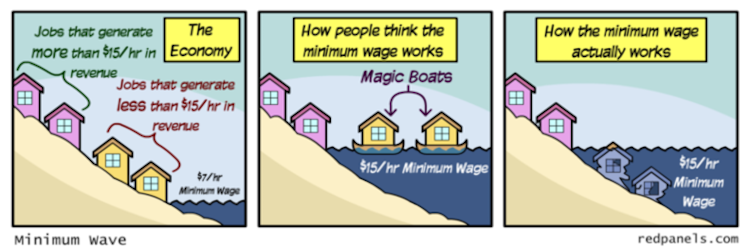Mr. Coren may think he’s being quite brave and standing with the downtrodden. In fact, he’s doing nothing of the sort. He’s advocating for using power of the state to limit people’s choices. He’s saying to the labourer who has lost an arm in an accident and his prospective employer, “I don’t care if you’re willing to work for $14 an hour and someone is willing to pay you that much—I know better than you what a dignified wage is and I’m prepared to see those who disagree locked in cage.” He’s saying to the owner of the little noodle shop who makes less than minimum wage herself, “you’re exploiting your workers—you should be paying them a living wage, and I’m willing to see you bankrupted to make that happen.”
He is saying to the bright young man with autism who is eager to work but socially awkward enough that few employers would risk hiring him, “It’s best that you make a career out of receiving disability payments from the government, even though the local used bookstore owner would be willing to give you a chance to fill your days with work you’d enjoy for $7.50 an hour.” He’s saying to pretty much all the minimum wage workers at big retail chains, “You’d be wise to quit now and study robotics engineering or software design, because raising the minimum wage means your jobs will be automated sooner rather than later.”

